The Beoplay H100 from Bang & Olufsen is a high-quality Bluetooth headphone with excellent sound, easy operation, strong noise cancellation, first-class workmanship and an attractive design. Despite the steep price tag of €1,500, this is a premium product that is well worth the money.
- Very good sound
- Excellent ANC and transparency mode
- Design and finish
- Sustainability promise
- Running time
- Convincing control concept
- USB audio
- Very good speech intelligibility
- No Hi-Res codecs yet
- Ambitious price
Table of contents
- Introduction: Bang & Olufsen Beoplay H100 – A premium headphone for an anniversary
- Sustainability and durability: Replaceable parts and extended warranty
- Design and materials: High quality materials and stylish finish
- Comfort and fit: Fit and weight of the H100
- Technical specifications: Bluetooth, microphones and battery
- Operation: Innovative wheel and gesture control
- Noise cancelling and transparency mode: effectiveness and settings
- Sound quality: EarSense technology and sound quality put to the test
- Conclusion: Is the Bang & Olufsen Beoplay H100 worth buying?
To celebrate its 95th anniversary, Bang & Olufsen has released a special edition of the Beoplay H95 (reviewed here) with everything you would expect from a premium headphone. In the test, they impressed us, even if the price of around €1,000 was ambitious compared to the competition. It was clear to fans of the Danish luxury brand that there had to be a successor to the 100th model, and since September there has been a Beoplay with the 100 in its name.
Value in kind
The H100 is available for 1,499 euros, and buyers can expect a lot for that price. The manufacturer, on the other hand, has unlimited resources at its disposal, and the H100 is one of the products that does not show the effects of budget cuts. As a classic premium product, it offers a high level of sophistication in terms of technology, design, choice of materials and audio quality. The Bang & Olufsen shop even describes the H100 as ‘the ultimate over-ear headphone’. We took a closer look to see if this was a slight exaggeration.
Sustainability a top priority
Bang & Olufsen wants the customer to keep the H100 for a long time. The valued buyer wants to get his money’s worth and enjoy it for a long time. Components that wear out over time, such as the ear cushions and headband, can be replaced by the user (available in their shop). The built-in batteries, drivers and circuit boards are promoted as a service and an extended 5 year warranty is also offered.
Material world – elegantly crafted
Leather, aluminium and glass are on the H100’s list of materials, with two “glass panels” adorning the exterior and providing a grateful surface for capacitive gesture control. The ear pads are made from the finest leather and can be removed and replaced as required using a magnetic clasp. The head pad is made of fine fabric with a foam core underneath, and is attached to the underside of the headband with a slight tension and two clip holders.
The extendable temples, hinge and gondolas are made of matt blasted aluminium. The H100s are high quality, and the two rotating wheels – which I will discuss in more detail below – as well as a button on the underside of both headphones are of an appealing character. Included in the H100 box is a zippered leather pouch with an inner compartment for the 1.2 cm long cables. The USB-C to USB-C cable is used to charge the battery and transfer audio signals. The second cable has a USB-C connector for the handset on one end and a 3.5 mm mini plug for the In-flight entertainment or any headphone jack, e.g. from a computer or stereo system, on the other.
First fitting: tight fit and ready to play
Due to the anatomy of my head (hat size 60), over-ear headphones always sit a little tighter on my skull. This is also true of the H100s, although due to the small inner diameter of the ear cushions, you have to make sure that the whole ear is under the ‘spoons’. My glasses, which are quite thick, still fit between the well sealing earpads and do not affect either the passive attenuation or the behaviour of the active NC.
As soon as you put the H100s on, you can start playing. On first contact, the headphones immediately search for a potential gaming partner. Once connected via the smartphone app, the H100 takes care of the rest: it turns on – accompanied by a pleasant welcome tone – and connects to the last player you connected to.
Due to my rather limited anatomical space for over-ear headphones, the 375-gram H100 started to feel a little uncomfortable after about an hour of wearing. Let’s put it this way: I can wear my Apple AirPods Max (review) for longer. However, less stubborn fellow travellers also confirmed that they could wear them for long periods without discomfort.
In tune with the times – the Beoplay H100’s specifications
There is not much missing from the feature wish list, and if there is something missing, Bang & Olufsen promises to deliver it in 2025. The iOS and Android apps have been completely overhauled, and the Beoplay family should be able to implement future improvements via software updates. For example, in addition to the Bluetooth codecs AAC and SBC, the Hi-Res codec LDAC, which was missing in the test, will soon be added. Also planned for the near future is 3-device multipoint; two are currently possible. The ‘Voice Messages’ and ‘Bluetooth Devices’ functions are also greyed out in the app. We think it’s about integrating your own voice assistant and managing multiple Bluetooth devices. Bluetooth 5.3 is currently supported. Hopefully the H100 will soon be able to communicate with Bluetooth 6 devices, otherwise the promise of future-proofing will have been an empty one.
Thanks to quick pairing via Google Fast Pair, Microsoft Swift Pair and Made For iPhone certification, the Beoplay H100 works well with most Bluetooth devices. Switching between systems and even multipoint connections was no problem.
The physical aspects of the headphones are also good: a total of 10 built-in microphones ensure the best possible speech intelligibility and the ANC/transparency function. According to the datasheet, the dynamic 40mm titanium/neodymium drivers are capable of reproducing a frequency range from 10 to 40,000Hz in Hi-Res mode, and at 103dB SPL, the volume reserve is just above my pain threshold.
The H100 is also well equipped in terms of power supply: the handset houses two 520 mAh lithium-ion batteries. When used with a recommended 5V 3A DC power adapter (not included), a maximum of 32 hours of battery life with ANC is possible. When spatial audio with head tracking is used, the processor requires an additional two hours of power. After 26 hours of calls, the H100 should be plugged in, although 5 hours of playback time can be recharged within 5 minutes. During the test, the stated consumption and charging times were more or less confirmed. The quick charge function was particularly impressive; after being connected to a computer via USB for just a few minutes, the charge level indicator shot up from 30 to 70%.
Something I only knew from the Apple AirPods Max: the standby time of up to 3 months can be extended to up to a year if you leave them in the leather case. Now you may be wondering why you would leave such expensive headphones lying around unused for so long. However, the ‘deep sleep’ function is an important feature when using the leather pouch to prevent the battery from draining completely, as the H100 do not have an on/off switch. As with the AirPods Max, sensors are used to enable the Late Riser mode.
Reinventing the wheel – handling the H100s
I was already impressed by a ‘rotating ring’ on the right earcup of the 95th anniversary H95. Now there are two of them, positioned on the outer edge and designed as endless controllers. The right one controls the volume, the left one the transparency mode or ANC. You can turn it to increase the amount of outside noise or close the acoustic valve. Very useful and easy to use. Another tactile treat is the ability to mute the useful signal and let the transparent signal through by placing your hand on one of the two glass surfaces. My praise for the latter two functions goes to the inventors of the two mute wheels.
On both undersides, there is a well-touchable rectangular ‘button’ that switches between ANC and transparency mode, but also provides Bluetooth pairing services. The glass touchscreens on either side are open to swiping gestures and are highly customisable. The screenshots from the Beoplay app show just how much you can do to customise the H100’s operation. The transparent mode is charmingly called ‘World Volume’ in the app.
Sound of Silence – effective noise cancellation and a very good transparent mode
Apple’s AirPods Max and Bose’s QuietComfort Ultra Headphones (see review) are at the top of the list when it comes to ANC, and the Beoplay H100 is no slouch either. We were impressed with both the adaptive noise cancellation and transparency modes, with the fine-tuned ‘opening’ and ‘closing’ of external noise using the left-hand dial being a highlight of the test, surpassed only by the muting of the user signal while allowing external noise to pass through.
There was never any background noise during the tests – again, the manufacturer has this under control.
How the H100 sounds
First things first: With ‘EarSense’, Bang & Olufsen has developed an adaptive audio processing technology that adapts the headphones to the environment and the individual hearing needs of the user. The microphones and sensors continuously analyse the ambient noise and dynamically adjust the sound reproduction. This can affect the volume, sound balance or active noise cancellation, for example. When the ambient noise level changes, EarSense automatically adjusts the sound to ensure consistent sound quality regardless of the volume. EarSense also focuses on speech frequencies, making it easier to understand conversations in noisy environments.
Other manufacturers also constantly measure the acoustic events in the ear cups and what is happening outside, but B&O has done a particularly good job. Rarely have I experienced headphones that establish and maintain a connection with such precision and always deliver a pleasant sound and voice quality, especially when switching between activities such as telephoning, listening to music and online calls.
With so much going for them, expectations are naturally high when it comes to listening to music. I got to know the Beoplay during my daily routine. Podcasts, a bit of radio, a chat with colleagues and the odd phone call – with the overall verdict being ‘yes, it sounds good’.
For more in-depth listening tests, I started by playing some pieces from the classical genre via Apple Music and iPhone. For example, there is ‘Nautical Twilight’ from Alice Humphries’ album ‘Salt’, a chamber piece with string instruments which, by their very nature, produce a wide sonic spectrum. And it is here that the H100 confidently demonstrates its capabilities. The soft bow stroke of a violin or a violin played hard on the edge of the bow, as well as cellos and basses that start softly, are reproduced with detail and volume in tutti passages.
The piano is also well suited for judging the sound. ‘Donn’ by Icelandic musician Aoife Joyce, played using the so-called felt piano technique, is a delight to hear with the H100. The damping felt between the hammerhead and the strings accentuates the sounds of the action, but also the resonating string vibrations, creating an intimate soundstage. Again, the richness of detail and depth of sound are impressive. Another example of a felt piano is Olafur Arnalds’ ‘saman’ in Dolby Atmos format, which the H100 reproduced with great subtlety.
In the pop and electronic genres, we listened to Apple Music in 3D audio, i.e. Dolby Atmos. Massive Attack’s ‘Paradise Circus’ had a wonderfully dry and defined bass, and Kraftwerk’s ‘Computerwelt’ in Dolby Atmos 3D will make you a Kraftwerk fan if you weren’t already. The spaciousness and clarity of the work was on full display on the H100.
At the moment, the H100 can only receive hi-res audio via USB audio, as the required and promised LDAC codec will only be available in a future software update. We listened to some high-resolution audio files via USB from a computer, such as ‘Bogoroditse Devo’ by Voces8, a choral piece recorded in a church, which the H100 reproduced perfectly. We also played the same file from the Pioneer XDP-30R (review) via the analogue output, i.e. the converter of the Hi-Res player, and connected it to the H100 using the supplied USB-to-mini-jack cable, and the listening experience was almost identical.
The H100 is suitable for use on the sofa or in your favourite armchair. It rewards the music fan with a clean stereo image and a detailed response. The sound character is best described as ‘neutral’, and the digital signal processing used always tunes it to ‘beautiful’ across genres. I’m certainly not going to criticise this, because the H100s are multifunctional: first and foremost they’re very good music headphones, but they’re also a high-quality wearable that can be used in everyday life without hesitation. Speech intelligibility was excellent, both for the listener and for those listening in on various online conversations.
The verdict
With the Beoplay H100, Bang & Olufsen has launched a convincing pair of headphones that may be a little too expensive for some, but as a premium product they are well worth the money. The most important feature is the excellent sound for Bluetooth headphones. The beautifully simple tactile controls, excellent noise cancellation, first-class workmanship and successful design justify the €1,500 price tag. If Bang & Olufsen keeps its promise to improve the sound via software, and also keeps its service promise, then the Beoplay H100 is a worthwhile investment in the future.
Technical specifications
- Ear couplingOver-ear
- Typeclosed
- Transducer principledynamic
- Frequency response (headphones)10 - 40.000 Hz
- Sound pressure level (SPL)103 dB
- Weight without cable375 g
- Cable length125 cm
What's in the box
- Fabric USB-C to USB-C cable
- Fabric USB-C to 3.5 mm audio cable
- Leather pouch
Special features
- Available in Sunset Apricot, Infinite Black, Hourglass Sand
- BT version: 5.3
- BT codecs (as of Oct. 2024): SBC, AAC











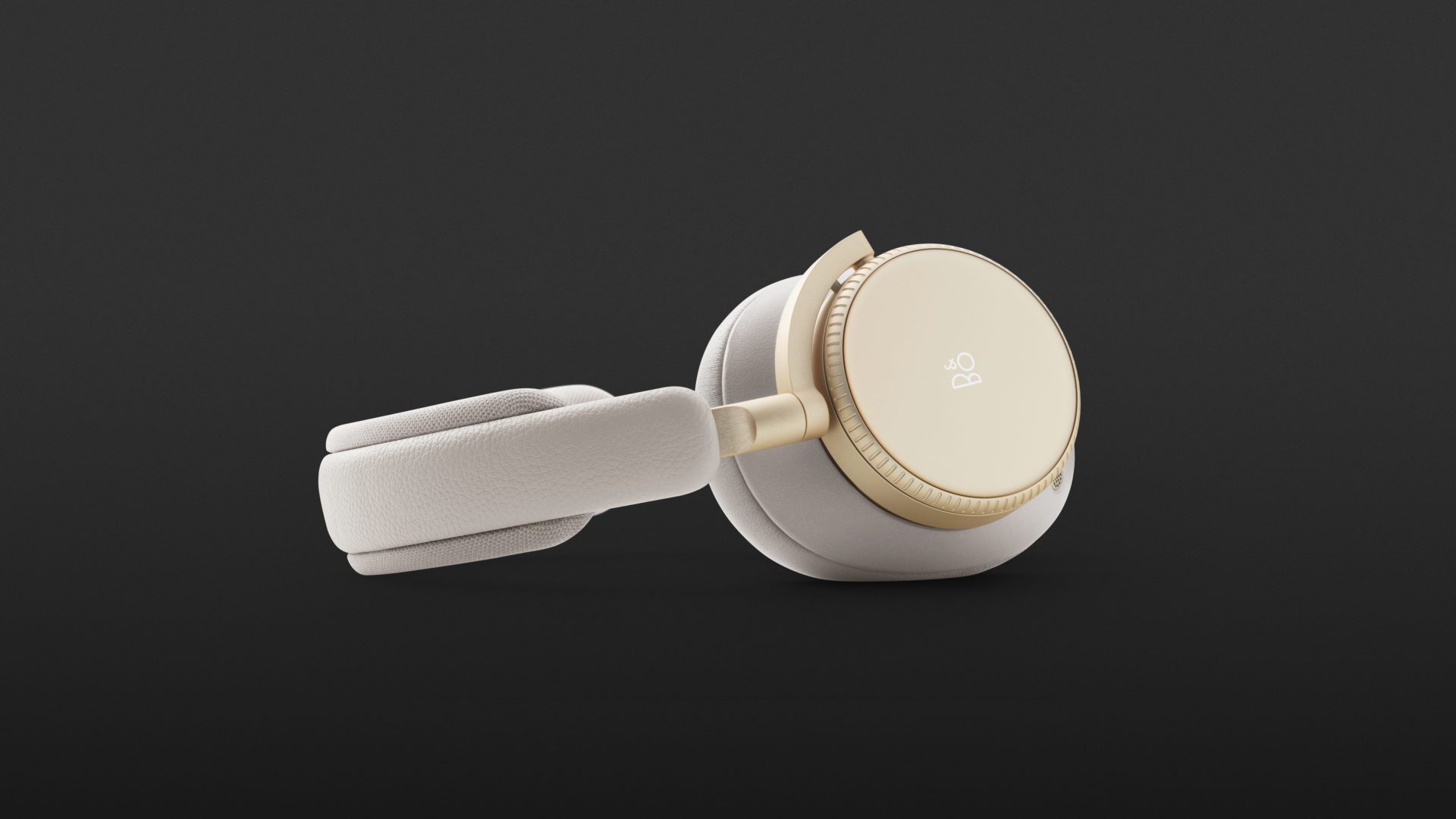


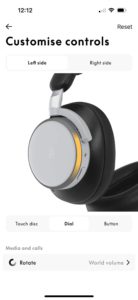
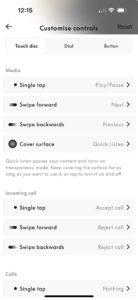
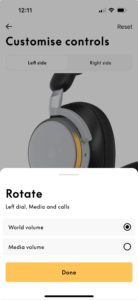
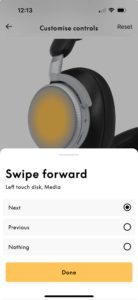
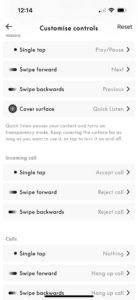
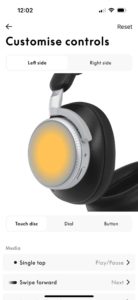

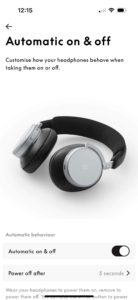
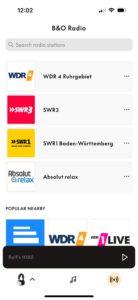

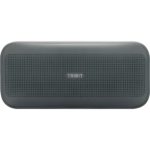

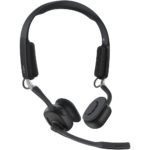

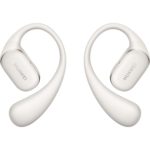

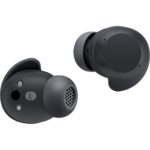

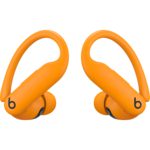

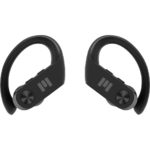

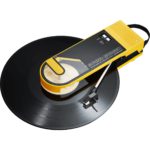

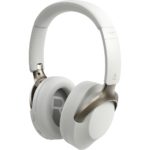

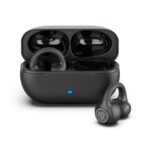

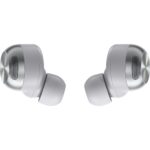

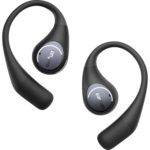


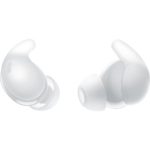
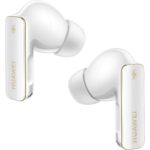

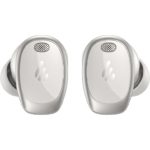

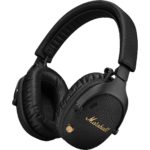

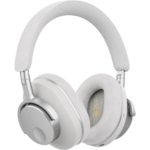





Just had a listen to these H100s and bought on the spot. I came for the Focal Bathys but Bathys are same or comparable to AirPods Max minus a working app that disconnects on iOS18.2.
Tried the H100 and hell yes, they are the answer and a proper competition to my living room HiFi setup with naim amp and vintage 3-way hitachi speakers
Did you discover that these headphones doesn’t support multipoint Bluetooth? The app lacks functionality to select source. Very disappointing at this price point.
If I knew, I wouldn’t have bought them.
It is a non-issue for me, given the sound quality. You can always set them into pairing mode and just select from the device bluetooth, like everything else. Why demand app installations everywhere?